Product Description
HangZhou Haozheng Hydraulic Machinery Equipment Co., Ltd.
HangZhou Haozheng Hydraulic Machinery Equipment Co., Ltd. is a manufacturer that started researching, developing, manufacturing and selling hydraulic pumps earlier in China. The main hydraulic products include A10VSO\PVH\PAVC\A11VO\A4VSO\PV\PVXS and other series of plunger pumps and hydraulic spare parts, which are exported to Canada, the United States, Mexico, Brazil, Norway, Italy, France, the United Kingdom, Russia, South Africa, Kenya, Saudi Arabia and others. It is widely used in steel mills, power plants, engineering machinery, mining machinery, industrial equipment, metallurgical machinery, injection molding, oil drilling, ports and ships and other fields.
product-group/nMBGJqeDbgVC/Parker-Piston-Pump-catalog-1.html
product-group/ZeNaotCEAgVi/Rexroth-Piston-Pump-catalog-1.html
product-group/jeJAcxmvuIfG/Vikcers-Piston-Pump-catalog-1.html
product-group/BqFfjLEznPVk/Hydraulic-pump-parts-catalog-1.html
Product Description
| Mode | Control | displacement cm³/rev | Flow L/min | Bar | Rpm | Power/kw | Cm | Kg |
| pv16 | Here is 1 of 2 versions: Standard Pressure Control F*S Remote Pressure FRC Remote pressure FR1 (with NG6 interface) Load sensing FFC Power Control: Remote Pressure*L*/Load Sensing*C* |
16 | 24 | 350-420bar | 3000 | 15.5 | 51x40x27 | 19 |
| pv20 | 20 | 30 | 19.5 | |||||
| pv23 | 23 | 34.5 | 22.5 | |||||
| pv32 | 32 | 48 | 2800 | 31 | 30 | |||
| pv40 | 40 | 60 | 39 | |||||
| pv46 | 46 | 69 | 45 | |||||
| pv63 | 63 | 94.5 | 2800 | 61.5 | 60 | |||
| pv80 | 80 | 120 | 2500 | 78 | ||||
| pv92 | 92 | 138 | 2300 | 89.5 | ||||
| pv140 | 140 | 210 | 2400 | 136 | 90 | |||
| pv180 | 180 | 270 | 2200 | 175 | 90 | |||
| pv270 | 270 | 405 | 1800 | 263 | 172 |
Our Products
We provide various models of axial variable displacement piston pumps and accessories, including the CHINAMFG brand’s A11VO, A10VSO, A11VO, the Vikers brand’s PVH, PVXS, PVB, PVM, and the CHINAMFG brand’s PAVC, PVP, PV. We also offer the Cate tractor modified version PVH 6E-3136 series. Therefore, hydraulic pumps can be customized according to displacement, control method, flange port, etc.
Company Profile
FAQ
1.What’s the application for pump?
Construction equipment Steel factory or Power plant Industrial equipment Related hydraulic system
2.What about the MOQ?
MOQ:1pcs.
3.Are you manufacturer? And what’s the delivery time?
Yes, we are manufacturer and have our own factory. Generally, its in stock for common models, 1-3 days will be finished and sent to customer in time.
4.Which payment methods are accepted?
We usually accept T/T,L/C,Western union,Trade assurance,VISA Card.
5.How about the inspection and Guarantee of products?
We promise: all products are tested before ship, to confirm it will be working and in good conditions when customers get. Also, we offer 12-month guarantee, if it doesn’t work due to quality issue in the period, we will send spares to repair for free. Accordingly, the pump will work last at least 18 months.
6 What about your after-sale service?
If there is any question in use, please talk with your sales manager at any time, so we will know your problems are and help to solve.
We can provide ODM and OEM service
Production capacity:
| Product Line Name | Production Line Capacity | Actual Units Produced(Previous Year) |
|---|---|---|
| A10VSO Series Piston Pump,HG Series Gear Pump,PAVC Series Piston Pump,PV Series Piston Pump,PVH Series Piston Pump | 2 |
Export Market Distribution:
| Market | Total Revenue (%) | |
|---|---|---|
| North America | 6 | |
| South America | 4 | |
| Eastern Europe | 8 | |
| Southeast Asia | 2 | |
| Africa | 3 | |
| Oceania | 2 | |
| Mid East | 2 | |
| Eastern Asia | 1 | |
| Western Europe | 3 | |
| Central America | 2 | |
| Northern Europe | 2 | |
| Southern Europe | 3 | |
| South Asia | 2 | |
| Domestic Market | 60 |
Production Machinery:
| Machine Name | Brand & Model No. | Quantity | Number of Year(s) Used | Condition |
|---|---|---|---|---|
| CNC Machining Center | Confidential | 8 | 2 | acceptable |
| CNC Lathe | Confidential | 4 | 2 | acceptable |
| Surface Grinder | Confidential | 1 | 2 | acceptable |
| Cylindrical Grinder | Confidential | 1 | 2 | acceptable |
| Hydraulic Gear Drawing Machine | Confidential | 1 | 2 | acceptable |
| Horizontal Honing Machine | Confidential | 1 | 2 | acceptable |
| Ordinary Lathe | Confidential | 1 | 2 | acceptable |
| Pressure Washer | Confidential | 1 | 2 | acceptable |
| Milling Machine | Confidential | 1 | 2 | acceptable |
Testing Machinery:
| Machine Name | Brand & Model No. | Quantity | Number of Year(s) Used | Condition |
|---|---|---|---|---|
| Hydraulic Test Bench | Confidential | 1 | 1 | acceptable |
/* January 22, 2571 19:08:37 */!function(){function s(e,r){var a,o={};try{e&&e.split(“,”).forEach(function(e,t){e&&(a=e.match(/(.*?):(.*)$/))&&1
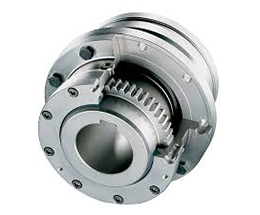
What Is a Gear Coupling and How Does It Work?
A gear coupling is a type of mechanical coupling that connects two shafts together to transmit torque and rotational motion between them. It consists of two gear-like hubs with external teeth that mesh together and transmit torque via the engagement of the teeth. The gear teeth on the hubs allow for high torque transmission and provide flexibility to accommodate misalignments between the shafts.
The working principle of a gear coupling can be summarized as follows:
1. Gear Hubs: A gear coupling consists of two hubs, each attached to the respective shafts that need to be connected. The hubs have external gear teeth that mesh together when the coupling is assembled.
2. Gear Teeth Engagement: When the two gear hubs are brought together during installation, the gear teeth on one hub mesh with the corresponding teeth on the other hub. This meshing creates a strong mechanical connection between the two shafts.
3. Torque Transmission: As the connected shafts rotate, the gear teeth engage and transmit torque from one shaft to the other. The gear coupling can handle high torque loads, making it suitable for heavy-duty applications.
4. Misalignment Compensation: One of the key advantages of a gear coupling is its ability to accommodate various types of misalignment, including angular, parallel, and axial misalignments between the connected shafts. This misalignment compensation helps reduce stress on the connected equipment and prevents premature wear.
5. Lubrication: Gear couplings may require lubrication to reduce friction between the gear teeth and ensure smooth operation. Proper lubrication helps improve the efficiency and longevity of the coupling.
Gear couplings are commonly used in various industrial applications, such as power generation, steel mills, mining, and heavy machinery. They offer high torque capacity, excellent misalignment accommodation, and reliability, making them a preferred choice for transmitting power in demanding environments.


editor by CX 2024-04-13
China Good quality in Stock 26m65made China P350 Gear Hidraulic CHINAMFG Hydraulic Pump Coupling gear coupling
Product Description
HangZhou Haozheng Hydraulic Machinery Equipment Co., Ltd.
HangZhou Haozheng Hydraulic Machinery Equipment Co., Ltd. is a manufacturer that started researching, developing, manufacturing and selling hydraulic pumps earlier in China. The main hydraulic products include A10VSO\PVH\PAVC\A11VO\A4VSO\PV\PVXS and other series of plunger pumps and hydraulic spare parts, which are exported to Canada, the United States, Mexico, Brazil, Norway, Italy, France, the United Kingdom, Russia, South Africa, Kenya, Saudi Arabia and others. It is widely used in steel mills, power plants, engineering machinery, mining machinery, industrial equipment, metallurgical machinery, injection molding, oil drilling, ports and ships and other fields.
product-group/nMBGJqeDbgVC/Parker-Piston-Pump-catalog-1.html
product-group/ZeNaotCEAgVi/Rexroth-Piston-Pump-catalog-1.html
product-group/jeJAcxmvuIfG/Vikcers-Piston-Pump-catalog-1.html
product-group/BqFfjLEznPVk/Hydraulic-pump-parts-catalog-1.html
Product Description
| Mode | Control | displacement cm³/rev | Flow L/min | Bar | Rpm | Power/kw | Cm | Kg |
| pv16 | Here is 1 of 2 versions: Standard Pressure Control F*S Remote Pressure FRC Remote pressure FR1 (with NG6 interface) Load sensing FFC Power Control: Remote Pressure*L*/Load Sensing*C* |
16 | 24 | 350-420bar | 3000 | 15.5 | 51x40x27 | 19 |
| pv20 | 20 | 30 | 19.5 | |||||
| pv23 | 23 | 34.5 | 22.5 | |||||
| pv32 | 32 | 48 | 2800 | 31 | 30 | |||
| pv40 | 40 | 60 | 39 | |||||
| pv46 | 46 | 69 | 45 | |||||
| pv63 | 63 | 94.5 | 2800 | 61.5 | 60 | |||
| pv80 | 80 | 120 | 2500 | 78 | ||||
| pv92 | 92 | 138 | 2300 | 89.5 | ||||
| pv140 | 140 | 210 | 2400 | 136 | 90 | |||
| pv180 | 180 | 270 | 2200 | 175 | 90 | |||
| pv270 | 270 | 405 | 1800 | 263 | 172 |
Our Products
We provide various models of axial variable displacement piston pumps and accessories, including the CHINAMFG brand’s A11VO, A10VSO, A11VO, the Vikers brand’s PVH, PVXS, PVB, PVM, and the CHINAMFG brand’s PAVC, PVP, PV. We also offer the Cate tractor modified version PVH 6E-3136 series. Therefore, hydraulic pumps can be customized according to displacement, control method, flange port, etc.
Company Profile
FAQ
1.What’s the application for pump?
Construction equipment Steel factory or Power plant Industrial equipment Related hydraulic system
2.What about the MOQ?
MOQ:1pcs.
3.Are you manufacturer? And what’s the delivery time?
Yes, we are manufacturer and have our own factory. Generally, its in stock for common models, 1-3 days will be finished and sent to customer in time.
4.Which payment methods are accepted?
We usually accept T/T,L/C,Western union,Trade assurance,VISA Card.
5.How about the inspection and Guarantee of products?
We promise: all products are tested before ship, to confirm it will be working and in good conditions when customers get. Also, we offer 12-month guarantee, if it doesn’t work due to quality issue in the period, we will send spares to repair for free. Accordingly, the pump will work last at least 18 months.
6 What about your after-sale service?
If there is any question in use, please talk with your sales manager at any time, so we will know your problems are and help to solve.
We can provide ODM and OEM service
Production capacity:
| Product Line Name | Production Line Capacity | Actual Units Produced(Previous Year) |
|---|---|---|
| A10VSO Series Piston Pump,HG Series Gear Pump,PAVC Series Piston Pump,PV Series Piston Pump,PVH Series Piston Pump | 2 |
Export Market Distribution:
| Market | Total Revenue (%) | |
|---|---|---|
| North America | 6 | |
| South America | 4 | |
| Eastern Europe | 8 | |
| Southeast Asia | 2 | |
| Africa | 3 | |
| Oceania | 2 | |
| Mid East | 2 | |
| Eastern Asia | 1 | |
| Western Europe | 3 | |
| Central America | 2 | |
| Northern Europe | 2 | |
| Southern Europe | 3 | |
| South Asia | 2 | |
| Domestic Market | 60 |
Production Machinery:
| Machine Name | Brand & Model No. | Quantity | Number of Year(s) Used | Condition |
|---|---|---|---|---|
| CNC Machining Center | Confidential | 8 | 2 | acceptable |
| CNC Lathe | Confidential | 4 | 2 | acceptable |
| Surface Grinder | Confidential | 1 | 2 | acceptable |
| Cylindrical Grinder | Confidential | 1 | 2 | acceptable |
| Hydraulic Gear Drawing Machine | Confidential | 1 | 2 | acceptable |
| Horizontal Honing Machine | Confidential | 1 | 2 | acceptable |
| Ordinary Lathe | Confidential | 1 | 2 | acceptable |
| Pressure Washer | Confidential | 1 | 2 | acceptable |
| Milling Machine | Confidential | 1 | 2 | acceptable |
Testing Machinery:
| Machine Name | Brand & Model No. | Quantity | Number of Year(s) Used | Condition |
|---|---|---|---|---|
| Hydraulic Test Bench | Confidential | 1 | 1 | acceptable |
/* January 22, 2571 19:08:37 */!function(){function s(e,r){var a,o={};try{e&&e.split(“,”).forEach(function(e,t){e&&(a=e.match(/(.*?):(.*)$/))&&1
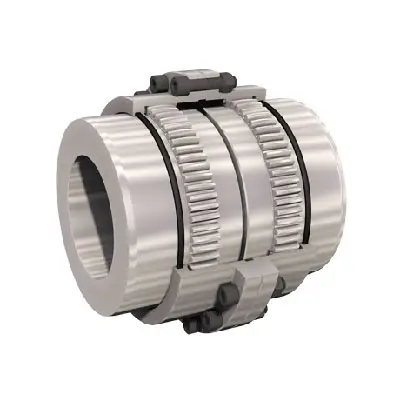
How Does a Gear Coupling Protect Connected Equipment from Shock Loads and Vibrations?
Gear couplings are designed to provide excellent protection to connected equipment from shock loads and vibrations, making them ideal for use in demanding and heavy-duty applications. The design and features of gear couplings that contribute to this protection include:
- Flexible and Rigid Elements: Gear couplings consist of two hubs with external gears that mesh together. Between these two hubs, there is a center sleeve with internal gear teeth. The center sleeve acts as a flexible element, while the outer hubs act as rigid elements. This combination allows the gear coupling to transmit torque while absorbing and dampening shock loads and vibrations.
- Misalignment Compensation: Gear couplings can accommodate angular, parallel, and axial misalignment between shafts. When the connected equipment experiences misalignment due to dynamic forces or shock loads, the gear coupling can flex and adjust to these changes, preventing excessive stress on the shafts and equipment.
- High Torsional Stiffness: Gear couplings offer high torsional stiffness, meaning they have minimal angular deflection under load. This stiffness helps maintain precise alignment and reduces the likelihood of damage to the connected equipment caused by misalignment-induced vibrations.
- Load Distribution: The toothed gear design of gear couplings ensures a large surface area of contact between the gears. This spreads the torque evenly across the gear teeth, resulting in a uniform distribution of load and reducing the concentration of stress on specific areas.
- Damping Characteristics: The flexible center sleeve in the gear coupling acts as a damping element that absorbs and dissipates vibrations, further protecting the connected equipment from harmful oscillations.
- High-Speed Balancing: Gear couplings are precisely balanced during manufacturing to minimize vibrations and ensure smooth operation even at high speeds. Proper balancing helps prevent resonances and reduces the impact of shock loads on the connected equipment.
By effectively absorbing and dampening shock loads and vibrations, gear couplings extend the life of the connected equipment and surrounding components, reduce maintenance requirements, and contribute to a more reliable and efficient mechanical system. However, it is essential to select the appropriate size and type of gear coupling based on the specific application and operating conditions to ensure optimal protection and performance.


editor by CX 2024-04-04
China factory Excavator Hydraulic Pump Coupling Gear Rubber Connecter for Dx210W-5 gear coupling
Product Description
Excavator Hydraulic Pump Coupling Gear Rubber Connecter For DX210W-5
Basic information:
| Type | Coupling |
| Trademark | YNF/Y&F |
| MOQ | No limited |
| Structure | AS/A/Bowex/Gear |
| Used For | Excavator |
| Sales type | Retail, Wholesale |
| Material | Natural Rubber |
| Advantage | Flexible, Lower Noise |
| Condition | OEM/Original |
Product show as below:
About us:
specialized in:
couplings, rubber mounts, gera parts, hydraulic seals and seal kits for hydraulic hammers, rock breakers, hydraulic excavators,wheel loaders, and JCB badkhoe loaders.
And, Our company also supply:
Engine parts, hydraulic piston pump and hydraulic travel motor, Swing motor assembly and hydraulic component parts, electric parts, etc. Hydraulic hammer breaker parts with piston, cylinder, chisel, through bolt, side bolt, top bush, front head bushing,accumlator, valve, etc.
We always try our best for all our customers and make it better and better. Welcome!
FAQ
/* January 22, 2571 19:08:37 */!function(){function s(e,r){var a,o={};try{e&&e.split(“,”).forEach(function(e,t){e&&(a=e.match(/(.*?):(.*)$/))&&1
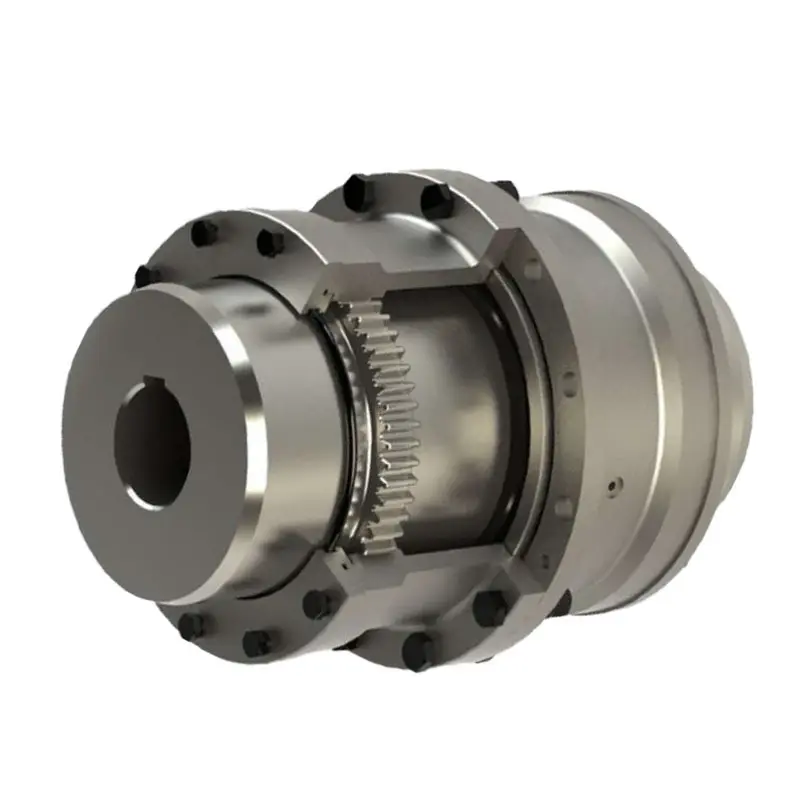
Handling Misalignment with Gear Couplings
Gear couplings are designed to accommodate certain degrees of misalignment between shafts, making them suitable for applications where some flexibility is required. They can handle three main types of misalignment:
- Angular Misalignment: This type of misalignment occurs when the axes of the two connected shafts are not parallel but intersect at a small angle. Gear couplings can handle a moderate amount of angular misalignment, typically up to a few degrees, without sacrificing performance.
- Parallel Misalignment: Parallel misalignment refers to a situation where the two connected shafts are offset in parallel but remain parallel to each other. Gear couplings can accommodate a certain amount of parallel misalignment, but it is generally limited to a fraction of the coupling’s overall length.
- Axial Misalignment: Axial misalignment happens when the two shafts are offset along the axis of rotation. Gear couplings can handle limited axial misalignment, but it is essential to ensure that the coupling’s end float or end-play is correctly set to prevent axial loading on connected equipment.
It is important to note that while gear couplings can handle some degree of misalignment, excessive misalignment can lead to premature wear and failure. Regular maintenance and proper installation are crucial to ensuring that gear couplings perform optimally and have a longer service life.


editor by CX 2024-03-26
China supplier in Stock 26m65made China P350 Gear Hidraulic CHINAMFG Hydraulic Pump Coupling gear coupling
Product Description
HangZhou Haozheng Hydraulic Machinery Equipment Co., Ltd.
HangZhou Haozheng Hydraulic Machinery Equipment Co., Ltd. is a manufacturer that started researching, developing, manufacturing and selling hydraulic pumps earlier in China. The main hydraulic products include A10VSO\PVH\PAVC\A11VO\A4VSO\PV\PVXS and other series of plunger pumps and hydraulic spare parts, which are exported to Canada, the United States, Mexico, Brazil, Norway, Italy, France, the United Kingdom, Russia, South Africa, Kenya, Saudi Arabia and others. It is widely used in steel mills, power plants, engineering machinery, mining machinery, industrial equipment, metallurgical machinery, injection molding, oil drilling, ports and ships and other fields.
product-group/nMBGJqeDbgVC/Parker-Piston-Pump-catalog-1.html
product-group/ZeNaotCEAgVi/Rexroth-Piston-Pump-catalog-1.html
product-group/jeJAcxmvuIfG/Vikcers-Piston-Pump-catalog-1.html
product-group/BqFfjLEznPVk/Hydraulic-pump-parts-catalog-1.html
Product Description
| Mode | Control | displacement cm³/rev | Flow L/min | Bar | Rpm | Power/kw | Cm | Kg |
| pv16 | Here is 1 of 2 versions: Standard Pressure Control F*S Remote Pressure FRC Remote pressure FR1 (with NG6 interface) Load sensing FFC Power Control: Remote Pressure*L*/Load Sensing*C* |
16 | 24 | 350-420bar | 3000 | 15.5 | 51x40x27 | 19 |
| pv20 | 20 | 30 | 19.5 | |||||
| pv23 | 23 | 34.5 | 22.5 | |||||
| pv32 | 32 | 48 | 2800 | 31 | 30 | |||
| pv40 | 40 | 60 | 39 | |||||
| pv46 | 46 | 69 | 45 | |||||
| pv63 | 63 | 94.5 | 2800 | 61.5 | 60 | |||
| pv80 | 80 | 120 | 2500 | 78 | ||||
| pv92 | 92 | 138 | 2300 | 89.5 | ||||
| pv140 | 140 | 210 | 2400 | 136 | 90 | |||
| pv180 | 180 | 270 | 2200 | 175 | 90 | |||
| pv270 | 270 | 405 | 1800 | 263 | 172 |
Our Products
We provide various models of axial variable displacement piston pumps and accessories, including the CHINAMFG brand’s A11VO, A10VSO, A11VO, the Vikers brand’s PVH, PVXS, PVB, PVM, and the CHINAMFG brand’s PAVC, PVP, PV. We also offer the Cate tractor modified version PVH 6E-3136 series. Therefore, hydraulic pumps can be customized according to displacement, control method, flange port, etc.
Company Profile
FAQ
1.What’s the application for pump?
Construction equipment Steel factory or Power plant Industrial equipment Related hydraulic system
2.What about the MOQ?
MOQ:1pcs.
3.Are you manufacturer? And what’s the delivery time?
Yes, we are manufacturer and have our own factory. Generally, its in stock for common models, 1-3 days will be finished and sent to customer in time.
4.Which payment methods are accepted?
We usually accept T/T,L/C,Western union,Trade assurance,VISA Card.
5.How about the inspection and Guarantee of products?
We promise: all products are tested before ship, to confirm it will be working and in good conditions when customers get. Also, we offer 12-month guarantee, if it doesn’t work due to quality issue in the period, we will send spares to repair for free. Accordingly, the pump will work last at least 18 months.
6 What about your after-sale service?
If there is any question in use, please talk with your sales manager at any time, so we will know your problems are and help to solve.
We can provide ODM and OEM service
Production capacity:
| Product Line Name | Production Line Capacity | Actual Units Produced(Previous Year) |
|---|---|---|
| A10VSO Series Piston Pump,HG Series Gear Pump,PAVC Series Piston Pump,PV Series Piston Pump,PVH Series Piston Pump | 2 |
Export Market Distribution:
| Market | Total Revenue (%) | |
|---|---|---|
| North America | 6 | |
| South America | 4 | |
| Eastern Europe | 8 | |
| Southeast Asia | 2 | |
| Africa | 3 | |
| Oceania | 2 | |
| Mid East | 2 | |
| Eastern Asia | 1 | |
| Western Europe | 3 | |
| Central America | 2 | |
| Northern Europe | 2 | |
| Southern Europe | 3 | |
| South Asia | 2 | |
| Domestic Market | 60 |
Production Machinery:
| Machine Name | Brand & Model No. | Quantity | Number of Year(s) Used | Condition |
|---|---|---|---|---|
| CNC Machining Center | Confidential | 8 | 2 | acceptable |
| CNC Lathe | Confidential | 4 | 2 | acceptable |
| Surface Grinder | Confidential | 1 | 2 | acceptable |
| Cylindrical Grinder | Confidential | 1 | 2 | acceptable |
| Hydraulic Gear Drawing Machine | Confidential | 1 | 2 | acceptable |
| Horizontal Honing Machine | Confidential | 1 | 2 | acceptable |
| Ordinary Lathe | Confidential | 1 | 2 | acceptable |
| Pressure Washer | Confidential | 1 | 2 | acceptable |
| Milling Machine | Confidential | 1 | 2 | acceptable |
Testing Machinery:
| Machine Name | Brand & Model No. | Quantity | Number of Year(s) Used | Condition |
|---|---|---|---|---|
| Hydraulic Test Bench | Confidential | 1 | 1 | acceptable |
/* March 10, 2571 17:59:20 */!function(){function s(e,r){var a,o={};try{e&&e.split(“,”).forEach(function(e,t){e&&(a=e.match(/(.*?):(.*)$/))&&1
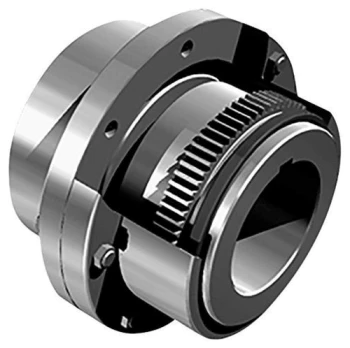
Advantages of Using Gear Couplings in Mechanical Systems
Gear couplings offer several advantages that make them a popular choice for connecting shafts in mechanical systems. Some of the key advantages include:
- High Torque Capacity: Gear couplings are designed to handle high torque loads, making them suitable for heavy-duty applications that require efficient power transmission.
- Misalignment Compensation: One of the significant advantages of gear couplings is their ability to accommodate various types of misalignment between the connected shafts, including angular, parallel, and axial misalignments. This flexibility helps reduce stress on the connected equipment and improves overall system performance.
- Shock and Vibration Dampening: The meshing of the gear teeth in a gear coupling provides inherent shock and vibration dampening capabilities. This feature helps protect the connected components from sudden impact loads and reduces wear and tear.
- Compact Design: Gear couplings have a compact design, which allows for easy installation even in tight spaces or limited clearance applications.
- High Reliability: Due to their robust construction and excellent torque transmission capabilities, gear couplings are known for their reliability and durability, ensuring long service life in demanding conditions.
- Easy Maintenance: Gear couplings are relatively easy to maintain. Regular inspection and proper lubrication help ensure smooth operation and extend the coupling’s life span.
- Wide Range of Sizes and Configurations: Gear couplings are available in various sizes and configurations, making it possible to find a suitable coupling for a wide range of applications.
- Suitable for High-Speed Applications: Gear couplings can be designed to handle high rotational speeds, making them suitable for applications where high-speed shaft connections are required.
- Temperature and Environment Tolerance: Gear couplings are often made from materials that can withstand high temperatures and harsh environmental conditions, making them suitable for use in challenging industrial settings.
Overall, gear couplings provide a reliable and efficient means of transmitting power between rotating shafts, particularly in heavy-duty and high-torque applications. Their ability to accommodate misalignment and dampen vibrations helps protect connected equipment and contributes to the smooth operation of mechanical systems.


editor by CX 2024-01-09
China Good quality Excavator Hydraulic Pump Coupling Gear Rubber Connecter for Dx210W-5 gear coupling
Product Description
Excavator Hydraulic Pump Coupling Gear Rubber Connecter For DX210W-5
Basic information:
| Type | Coupling |
| Trademark | YNF/Y&F |
| MOQ | No limited |
| Structure | AS/A/Bowex/Gear |
| Used For | Excavator |
| Sales type | Retail, Wholesale |
| Material | Natural Rubber |
| Advantage | Flexible, Lower Noise |
| Condition | OEM/Original |
Product show as below:
About us:
specialized in:
couplings, rubber mounts, gera parts, hydraulic seals and seal kits for hydraulic hammers, rock breakers, hydraulic excavators,wheel loaders, and JCB badkhoe loaders.
And, Our company also supply:
Engine parts, hydraulic piston pump and hydraulic travel motor, Swing motor assembly and hydraulic component parts, electric parts, etc. Hydraulic hammer breaker parts with piston, cylinder, chisel, through bolt, side bolt, top bush, front head bushing,accumlator, valve, etc.
We always try our best for all our customers and make it better and better. Welcome!
FAQ
/* March 10, 2571 17:59:20 */!function(){function s(e,r){var a,o={};try{e&&e.split(“,”).forEach(function(e,t){e&&(a=e.match(/(.*?):(.*)$/))&&1
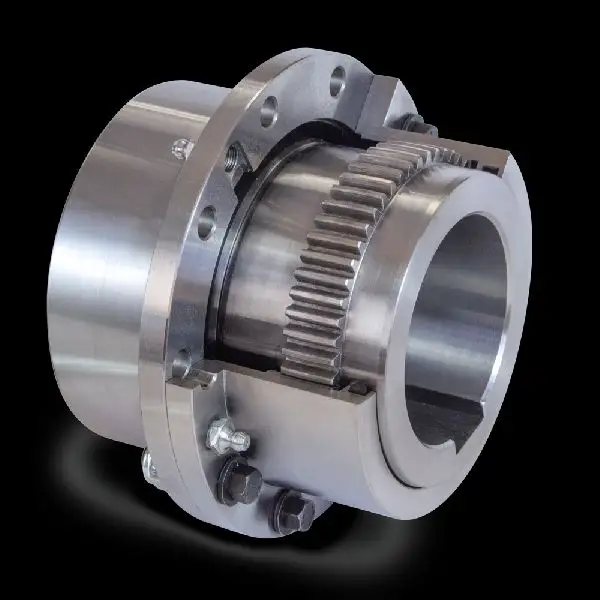
Are There Any Safety Considerations When Using Gear Couplings in Rotating Machinery?
Yes, there are several safety considerations to keep in mind when using gear couplings in rotating machinery:
- Guarding: It is essential to provide adequate guarding around gear couplings and other rotating parts to prevent accidental contact with moving components. Proper guarding helps protect personnel from potential entanglement, pinch points, or other hazards.
- Maintenance and Inspection: Regular maintenance and inspection of gear couplings are critical to ensure their safe and reliable operation. This includes checking for signs of wear, lubrication levels, and any abnormalities in the coupling’s performance.
- Lubrication: Proper lubrication of the gear coupling is essential to reduce friction, wear, and heat generation. Follow the manufacturer’s guidelines for lubrication intervals and use the recommended lubricant type.
- Temperature Monitoring: In high-speed or high-temperature applications, it is advisable to monitor the temperature of the gear coupling during operation. Excessive heat can indicate issues with lubrication or alignment that need immediate attention.
- Alignment: Ensure proper alignment of the connected shafts and gear coupling during installation. Misalignment can lead to increased wear, vibration, and premature failure of the coupling.
- Torque and Speed Limitations: Adhere to the specified torque and speed limitations provided by the gear coupling manufacturer. Operating the coupling beyond its rated capacity can result in failures and safety hazards.
- Emergency Shutdown: Machinery equipped with gear couplings should have an accessible and effective emergency shutdown mechanism to quickly stop the equipment in case of emergencies.
- Training: Provide proper training to personnel who work with or around machinery equipped with gear couplings. Training should cover safety protocols, coupling maintenance procedures, and the potential hazards associated with the equipment.
- Replace Damaged Couplings: If a gear coupling shows signs of damage, excessive wear, or malfunction, it should be replaced promptly to prevent potential accidents or equipment breakdowns.
Following these safety considerations can help ensure the safe and efficient operation of rotating machinery equipped with gear couplings. Regular maintenance, adherence to safety guidelines, and proper training contribute to a safer working environment and prolong the service life of gear couplings and the connected equipment.


editor by CX 2023-12-26
China factory Excavator Hydraulic Pump Coupling Gear Rubber Connecter for Dx210W-5 gear coupling
Product Description
Excavator Hydraulic Pump Coupling Gear Rubber Connecter For DX210W-5
Basic information:
| Type | Coupling |
| Trademark | YNF/Y&F |
| MOQ | No limited |
| Structure | AS/A/Bowex/Gear |
| Used For | Excavator |
| Sales type | Retail, Wholesale |
| Material | Natural Rubber |
| Advantage | Flexible, Lower Noise |
| Condition | OEM/Original |
Product show as below:
About us:
specialized in:
couplings, rubber mounts, gera parts, hydraulic seals and seal kits for hydraulic hammers, rock breakers, hydraulic excavators,wheel loaders, and JCB badkhoe loaders.
And, Our company also supply:
Engine parts, hydraulic piston pump and hydraulic travel motor, Swing motor assembly and hydraulic component parts, electric parts, etc. Hydraulic hammer breaker parts with piston, cylinder, chisel, through bolt, side bolt, top bush, front head bushing,accumlator, valve, etc.
We always try our best for all our customers and make it better and better. Welcome!
FAQ
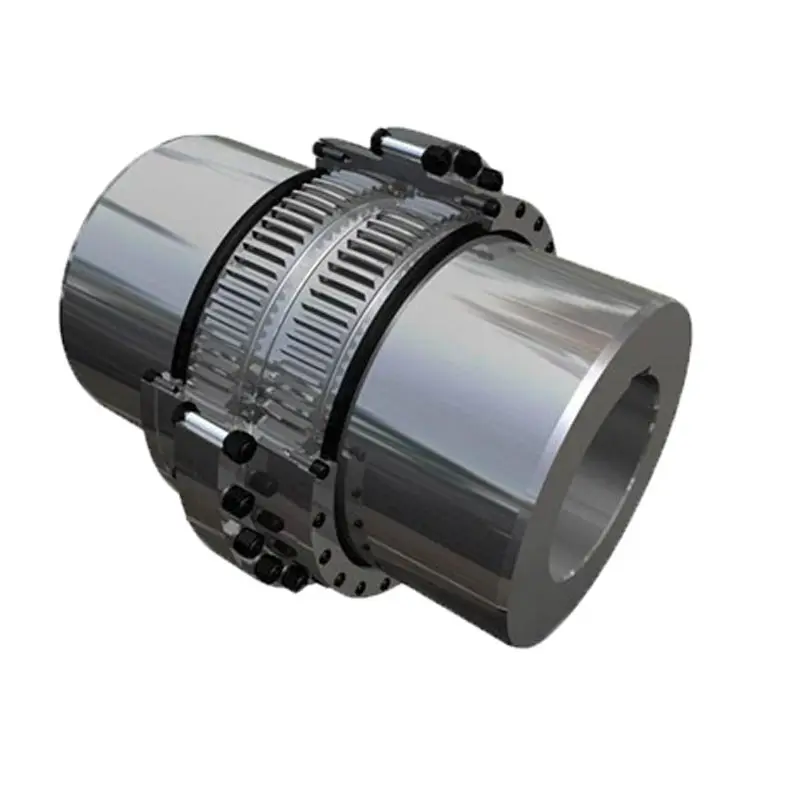
Can Gear Couplings Be Used in Both Horizontal and Vertical Shaft Arrangements?
Yes, gear couplings are versatile and can be used in both horizontal and vertical shaft arrangements.
Horizontal Shaft Arrangements: In horizontal shaft configurations, gear couplings are commonly employed to connect two shafts in-line with each other. The gear coupling’s flexible design accommodates for slight misalignment and torsional movement between the shafts, making it suitable for various industrial applications. These couplings can handle high torque loads and are often used in heavy-duty machinery such as steel rolling mills, mining equipment, and conveyors.
Vertical Shaft Arrangements: Gear couplings are also well-suited for vertical shaft arrangements, where the connected shafts are oriented one above the other. In such cases, gravity can cause additional axial loads on the coupling, which gear couplings are designed to handle. The gear coupling’s capacity to accommodate both angular and axial misalignment is essential in vertical applications, where thermal expansion and contraction may induce relative movement between the shafts.
Whether in horizontal or vertical shaft configurations, gear couplings provide reliable power transmission and are widely used in various industrial settings. However, it is essential to ensure proper alignment and maintenance for optimal performance and to prevent premature wear or failure of the coupling.


editor by CX 2023-11-07
China supplier Customized High Quality Nylon Sleeve Flexible Gear Shaft Coupling for Hydraulic Pump Coupling gear coupling
Product Description
Customized high quality Nylon Sleeve Flexible gear shaft coupling for hydraulic pump coupling
Product Description
1. Completely interchangeable with the original
2. Suitable for various mechanical engineering and hydraulic fields
3. Nylon and steel material match, maintenance-free
4. Can compensate axial, radial, and angular installation deviation
Product Parameters
| SIZE | MOLD | TOOTH | TORQUE (H.) |
SPEED (r/min) |
MAIN SIZE | ||||||
| SHAFT DIA (d1, d2) |
SHAFT LENGTH (L1,L2) |
L | D | H | D1 D2 | E | |||||
| NL2 | 1.5/1 | 28/42 | 100 | 6000 | 9-22 | 20-45 | CUSTOMIZED | 55 | 40 | 36 | 4 |
| NL3 | 1.5/1 | 34/25 | 160 | 6000 | 9-28 | 20-60 | 66 | 41 | 38-50 | 4 | |
| NL4 | 1.5/2 | 45/32 | 250 | 6000 | 12-38 | 25-80 | 84 | 47 | 50-60 | 4 | |
| NL5 | 2 | 38/36 | 315 | 5000 | 15-42 | 30-110 | 93 | 50 | 60-67 | 4 | |
| NL6 | 2/2.5 | 40/32 | 400 | 5000 | 16-48 | 40-110 | 100 | 51 | 60-70 | 4 | |
| NL7 | 2.5/2 | 36/45 | 630 | 3600 | 16-55 | 45-110 | 115 | 56 | 70-82 | 4 | |
| NL8 | 2.5/3 | 36/45 | 1250 | 3600 | 20-65 | 50-140 | 140 | 70 | 85-95 | 4 | |
| NL9 | 3 | 45/46 | 2000 | 2000 | 20-80 | 60-170 | 175 | 91 | 120 | 6 | |
| NL10 | 4 | 44 | 3150 | 1800 | 38-100 | 70-210 | 220 | 105 | 157 | 8 | |
Related Products
Company Profile
FAQ
Q: Can you make the coupling with customization?
A: Yes, we can customize per your request.
Q: Do you provide samples?
A: Yes. The sample is available for testing.
Q: What is your MOQ?
A: It is 10pcs for the beginning of our business.
Q: What’s your lead time?
A: Standard products need 5-30days, a bit longer for customized products.
Q: Do you provide technical support?
A: Yes. Our company has a design and development team, and we can provide technical support if you
need.
Q: How to ship to us?
A: It is available by air, sea, or by train.
Q: How to pay the money?
A: T/T and L/C are preferred, with different currencies, including USD, EUR, RMB, etc.
Q: How can I know if the product is suitable for me?
A: >1ST confirm drawing and specification >2nd test sample >3rd start mass production.
Q: Can I come to your company to visit?
A: Yes, you are welcome to visit us at any time.
Q: How shall we contact you?
A: You can send an inquiry directly, and we will respond within 24 hours.

How Does a Gear Coupling Handle Angular, Parallel, and Axial Misalignment?
Gear couplings are designed to handle various types of misalignment, including angular, parallel, and axial misalignment. Here’s how they handle each type:
- Angular Misalignment: Angular misalignment occurs when the two connected shafts are not collinear and form an angle with each other. Gear couplings can accommodate angular misalignment due to the flexibility of their gear teeth. The gear teeth allow a slight angular movement between the shafts without causing significant stress on the coupling.
- Parallel Misalignment: Parallel misalignment occurs when the two connected shafts are offset along their axis but remain parallel to each other. Gear couplings can handle parallel misalignment to some extent due to the slight axial movement allowed by the gear teeth. However, for larger parallel misalignments, special gear couplings with spacer elements or other features may be required.
- Axial Misalignment: Axial misalignment occurs when the two connected shafts are not in the same axial plane and have an offset along their length. Gear couplings can handle a certain degree of axial misalignment because the gear teeth can accommodate small axial movements without causing damage to the coupling or connected equipment.
The ability of gear couplings to handle misalignment is one of their key advantages over other types of couplings. The gear teeth act as flexible elements that can compensate for minor misalignments, reducing the stress and wear on the coupling and the connected equipment. However, it is essential to ensure that the misalignment remains within the allowable limits specified by the coupling manufacturer to maintain optimal performance and reliability.


editor by CX 2023-10-12